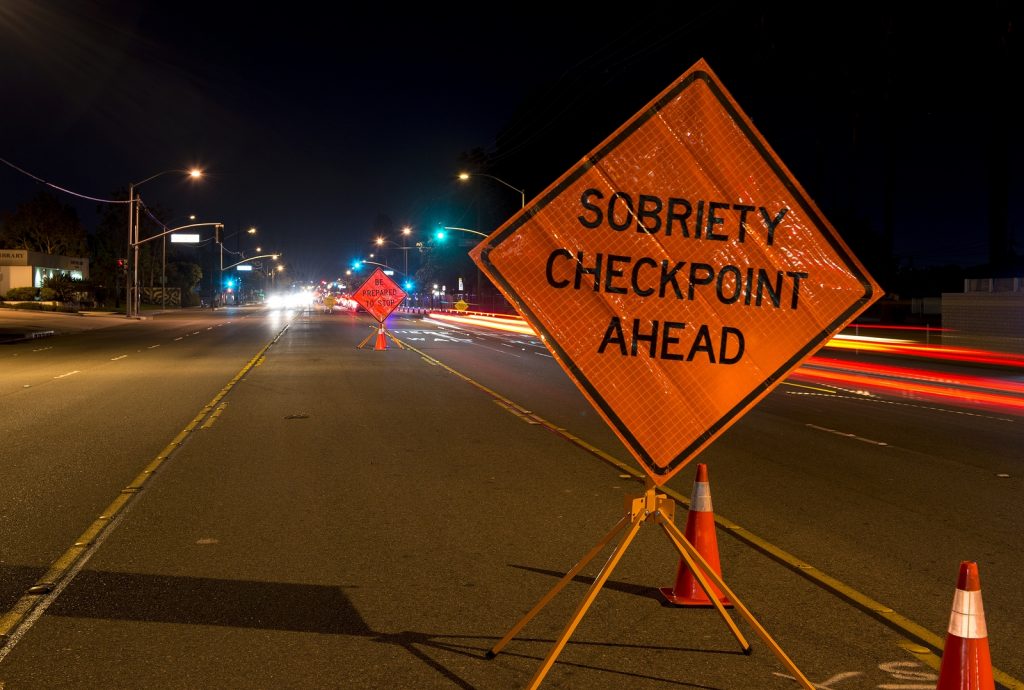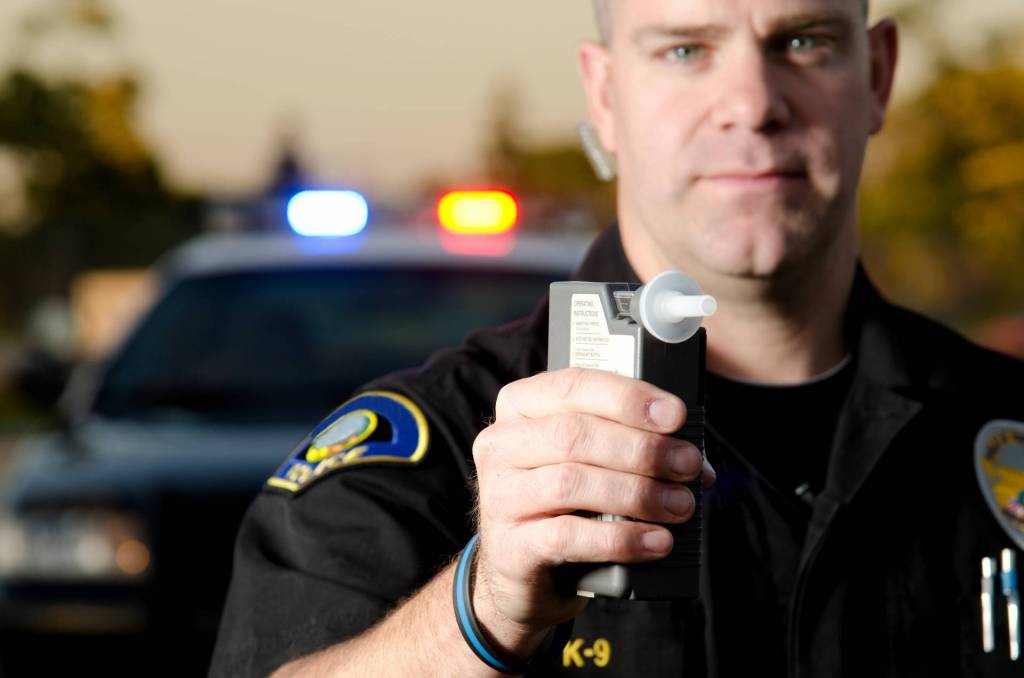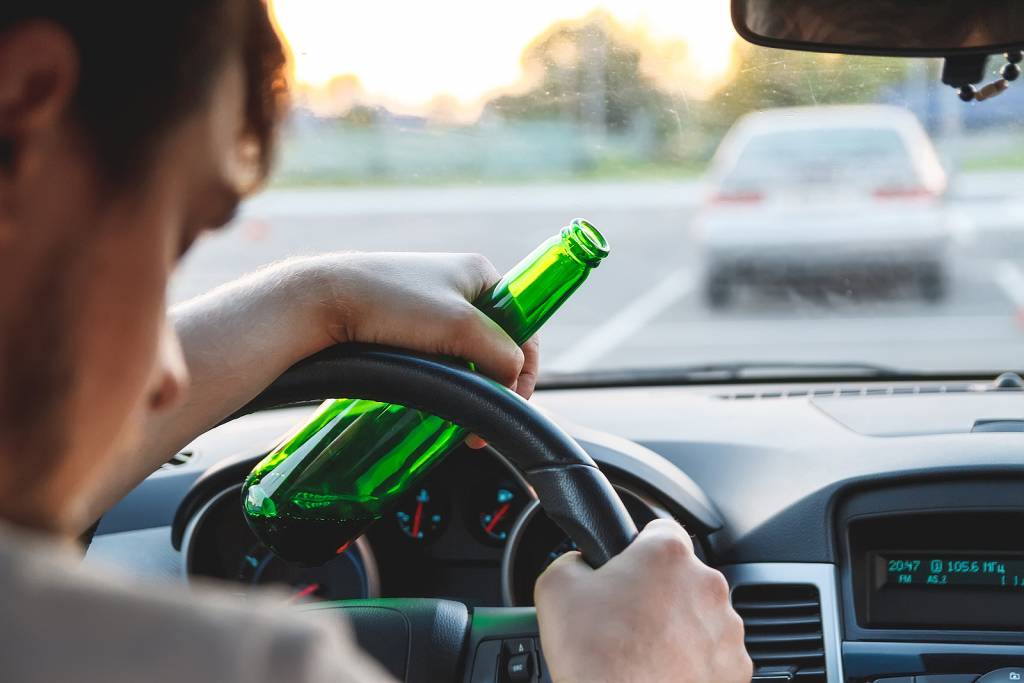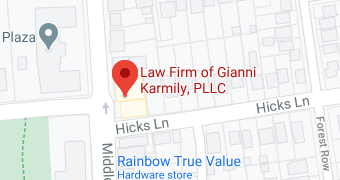New York State has some of the most intricate DWI (Driving While Intoxicated) laws in the nation, and comprehending the nuances of New York laws regarding DWI offenses can mean the distinction between having your license suspended or revoked, fines, jail time, and preserving your freedom. Nassau County, Long Island criminal defense attorney Gianni Karmily is here to unravel the intricacies of DWI vs. DWAI in New York.
With years of experience in handling the criminal side of drunk driving cases, Gianni Karmily is committed to guiding you through the similarities and differences between DWI and DWAI charges. Don’t leave your future to chance – call the Law Firm of Gianni Karmily at (516) 630-3405 for our Great Neck location or (516) 614-4228 for the Hempstead location today. Your strategic defense starts here.
DWI Meaning in New York State
In New York State, a DWI stands for “Driving While Intoxicated,” and it’s a serious criminal offense related to drunk driving that occurs when an individual operates a motor vehicle with a blood alcohol content (BAC) reaching or exceeding the legal limit of below 0.08%. A DWI conviction can have far-reaching consequences, including a permanent criminal record, license suspension or revocation, substantial fines, the possibility of probation, installing an ignition interlock device, and even jail time.
Understanding the legal definition of a DWI and its associated penalties is crucial for anyone facing such charges.
BAC Level for a DWI Offense in New York State
The legal limit for blood alcohol concentration (BAC) in New York is anything below 0.08%. If a driver’s BAC reaches or exceeds this threshold, they can be charged with a DWI. However, the limit is even lower for those operating commercial motor vehicles, set at below 0.04 BAC. Furthermore, if a driver’s BAC is exceptionally high, measuring at 0.18 or higher, they can face the more severe charge of Aggravated Driving While Intoxicated (Aggravated DWI).
Penalties for a DWI Conviction
In New York, drunk drivers can have their driver’s license revoked, face large fines, and even endure jail time. Specific DWI penalties typically depend on the number of offenses.
- First Offense: First-time DWI penalties include mandatory fines ranging from $500 to $1000, with up to 364 days of jail time, and a license revocation for a minimum of six months for first-time offenders.
- Second Offense: a second DWI conviction within 10 years carries severe penalties. These include a license revocation of at least one year, fines ranging from $1,000 to $5,000, and potential jail time of up to four years. Additionally, offenders will be required to install an ignition interlock device, face probation for up to five years, attend alcohol education programs, and may be required to perform community service. Penalties can vary based on factors like BAC level, previous convictions, whether the driver was involved in an accident, and other aggravating factors.
- Third Offense: a third DWI conviction within 10 years results in severe penalties for DWI offenders. These include longer license revocation, increased fines ranging from $2,000 to $10,000, and potential incarceration for up to seven years. Offenders will also be required to install an ignition interlock device, face probation for up to five years, attend alcohol education programs, and may be required to perform community service.
An aggravated DWI arrest is a serious matter, with consequences depending on the number of offenses:
- First Offense: Mandatory fines ranging from $1,000 – $2,500, up to 1 year of jail time, and license revocation for at least 1 year.
- Second Offense in Ten Years: Mandatory fines ranging from $1,000 – $5,000, up to 4 years of jail time, and license revocation for at least 18 months.
- Third Offense in Ten Years: Mandatory fines ranging from $2,000 – $10,000, up to 7 years of jail time, and license revocation for at least 18 months.
DWAI Meaning
In the state of New York, DWAI stands for “Driving While Ability Impaired,” and it’s a specific offense that addresses a person’s ability impaired by alcohol with a blood alcohol content (BAC) between 0.05% and 0.07%. Unlike DWI, which requires a BAC of 0.08% or higher, a DWAI offense focuses on impaired driving when the BAC falls within this specific range.
It’s important to note that even if your BAC is below the legal limit for DWI, you can still face DWAI charges for ability impaired by alcohol or drugs.
For a DWAI conviction for illegal drugs, prescription drugs, or some over-the-counter medications, fines may be up to $1,000. Additionally, a defendant can face a maximum jail sentence of 364 days and a six-month license revocation.
Impaired Driving in New York State: DWAI Alcohol vs. DWAI Drug
In New York, drivers can face criminal charges for not only allowing alcohol consumption to hinder their driving ability, but drug consumption, as well. DWAI (Driving While Ability Impaired) can be further categorized into two distinct subtypes: DWAI Alcohol and DWAI Drug.
DWAI Alcohol pertains to cases where a driver’s ability to operate a vehicle is impaired due to alcohol consumption, resulting in a BAC between 0.05% and 0.07%. On the other hand, DWAI by a single drug applies when a driver’s impairment is attributable to the use of one drug. Illicit drugs, some prescription drugs, and even some over-the-counter medications can cause significant impairment behind the wheel.
Understanding the differentiation between DWAI Alcohol and DWAI Drug is essential, as it can influence the legal proceedings and potential penalties associated with a DWAI charge.
DWAI Combined Influence
In the state of New York, a DWAI combination charge typically refers to a situation where a person is charged with DWAI due to a combined influence of alcohol and drugs or more than one drug in their system. This means that the individual was impaired by both alcohol and drugs, or the individual was impaired by more than one drug while operating a vehicle, which is considered a serious offense due to the increased impairment and potential danger it poses to oneself and others on the road. It’s important to note that the drug in question does not need to be a controlled substance to be charged with a DWAI combination charge in New York.
DWAI combination charges usually carry penalties similar to those for DUI offenses.
If you are facing a DWAI Combination charge, it’s crucial to arm yourself with strong legal representation from experienced criminal defense attorneys with extensive knowledge of New York laws.
DWAI BAC Legal Limit
The legal limit for blood alcohol content (BAC) in DWAI offenses in New York is set below 0.05 BAC, with the inclusion of other evidence of impairment. If a driver’s BAC falls within this specific range or they exhibit signs of impaired driving due to alcohol consumption, they can be charged with DWAI.
Penalties for Driving While Ability Impaired in New York State
Driving While Ability Impaired (DWAI) penalties in New York vary based on the specific circumstances. A DWAI conviction could mean:
- First DWAI Offense: Mandatory fine ranging from $300 to $500, potential jail time up to 15 days, and a 90-day license suspension.
- Second DWAI Offense in Five Years: Mandatory fine between $500 and $750, potential jail time up to 30 days, and a minimum six-month license revocation.
- Third or Subsequent DWAI Offense in 10 years: Mandatory fine between $750 and $1,500, potential jail time up to 180 days, and a minimum 6-month license revocation.
- First DWAI-Drug Offense: Mandatory fine between $500 and $1,000, potential jail time up to 364 days, and a minimum 6-month license revocation.
- Second DWAI-Drug Offense in 10 Years: Mandatory fine between $1,000 and $5,000, potential jail time up to 4 years, and a minimum 1-year license revocation.
- Third DWAI-Drug Offense in 10 Years: Mandatory fine between $2,000 and $10,000, potential jail time up to 7 years, and a minimum 1-year license revocation.
- First DWAI-Combination Offense: Mandatory fine between $500 and $1,000, potential jail time up to 364 days, and a minimum 6-month license revocation.
- Second DWAI Combination Offense: Mandatory fine between $1,000 and $5,000, potential jail time up to 4 years, and a minimum 1-year license revocation.
- Third DWAI Combination Offense: Mandatory fine between $2,000 and $10,000, potential jail time up to 7 years, and a minimum 1-year license revocation.
It’s important to note that greater penalties can apply for multiple alcohol or drug-related convictions on a driving record within a 25-year period, and three or more related convictions or refusals within 10 years may result in permanent revocation of driving privileges.
Refusing a Breath Test or Chemical Test in New York State
What happens if I refuse a chemical test in New York?
If a driver refuses a breath test or chemical test at the police station, they can face a mandatory $500 civil penalty and have their license revoked for a minimum of one year. Commercial drivers can have their driving privileges revoked for a minimum of 18 months.
DWI vs. DWAI in New York: What’s the Main Difference?
In the state of New York, the main distinction between a DWI offense and a DWAI offense lies in the specific blood alcohol concentration level at the time of the offense. DWI charges are brought when a driver’s BAC reaches or exceeds 0.08%, while DWAI applies when the BAC falls between 0.05% and 0.07% or when there is other evidence of impairment due to alcohol or drugs. Understanding this critical difference is pivotal because it determines the specific charge and associated penalties.
Defenses to DWI and DWAI Charges
DWI offenses can be reduced to DWAIs with a plea bargain under specific circumstances, more likely for first-time offenders with a low BAC level with no aggravating factors.
Can I beat a DWI case in New York without a lawyer?
While you can certainly choose to use a public defender for a DWI case in New York State, individuals facing these charges, especially those facing felony charges, can benefit greatly from an experienced Nassau County, Long Island DWI attorney like Gianni Karmily, who can navigate the complexities of New York’s DWI and DWAI laws to secure the best possible outcome for their case.
Several potential defenses could be raised, depending on the circumstances, such as rising BAC defense, to help get those accused a plea bargain or charges dismissed. A seasoned attorney can also help with challenging questions, such as should I accept a plea deal for my DWI charge in New York?
This highlights the importance of having a seasoned DWI attorney who diligently works to get the DWAI charges brought against you dismissed or reduced.
Call a Nassau County, Long Island DWI Attorney at the Law Firm of Gianni Karmily Today
If you or a loved one is facing charges for driving under the influence of alcohol or drugs in Nassau County, Long Island, you don’t have to face this daunting legal battle alone. Gianni Karmily is here to provide alleged DWI offenders with skilled legal representation. With a deep understanding of New York’s complex DWI and DWAI laws, Gianni Karmily is committed to fighting for your rights and tirelessly working to secure the best possible outcome for your case. Your future and freedom are too important to leave to chance. Call us today at (516) 630-3405 for our Great Neck location or (516) 614-4228 for the Hempstead location, and take the first step towards a strong and strategic defense.









